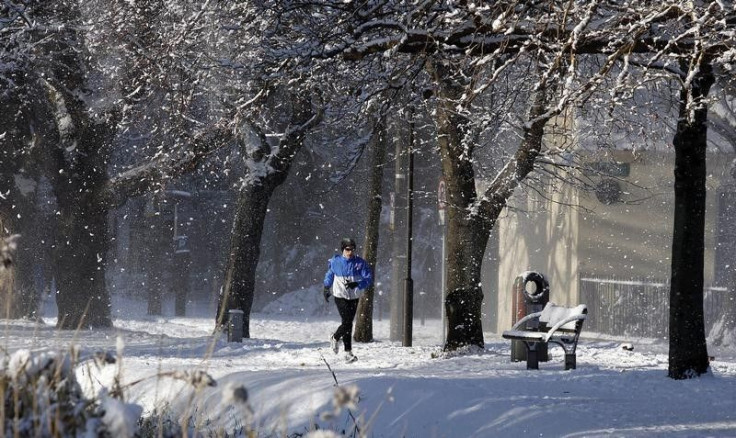Exposure To Cold Temperatures In The Morning May Help Burn Fat In Men: Study
Men who wish to lose weight may want to get exposed to cold temperatures in the morning because it may help boost fat burning in them, a new study has found.
The researchers behind the study learned that while men are more likely to burn fat when exposed to cold temperatures in the morning than in the evening, the same thing is not true for women.
The study focused on how cold exposure triggers the burning of brown adipose tissue or brown fat for temperature regulation and the burning of calories. Brown fat is a type of body fat that helps in regulating body temperature which gets activated right before a person feels the shiver in cold temperature.
The researchers also evaluated if fat burning follows a circadian rhythm and how the pattern differs in men and women.
"Our study indicates that the optimum time to undergo cold exposure is at a specific point in the body's 24-hour cycle," study co-author Mariëtte Boon from Leiden University Medical Center in the Netherlands said.
"It may also be that there is a sex difference in how the body responds to cold exposure with respect to boosting metabolism at a certain time point, and it appears that delivering cold exposure therapies in the morning may be more beneficial than the evening for men," Boon added.
The researchers are presenting the findings of the study at the European Congress on Obesity (ECO) in Dublin, Ireland this week.
In an initial study conducted in mice, researchers found that brown fat metabolic activity fluctuated throughout the day. The activity peaks just before waking up when the body needs to increase its core temperature and goes down at night.
The researchers then evaluated 24 lean participants comprised of men and women whose ages ranged between 18 and 31. During the evaluation, the participants were made to rest on water-filled mattresses that were gradually cooled until the temperature reached 48 degrees Fahrenheit or when they felt a shiver. They were exposed to stable cold for 90 minutes afterward, and their energy expenditure and skin temperatures were measured.
Researchers found that men had significant differences in the morning while cold-induced energy expenditure and skin temperature did not differ much between the morning and the evening in women.
The researchers believe that the study is "an important first step investigating the effects of circadian rhythm on the effects of cold exposure on (fat) metabolism." Meanwhile, they are trying to investigate if repeated bouts of cold exposure in the morning can improve cardiometabolic health in obese men.
"At the very least, our findings indicate that administering interventions at specific times should be considered when targeting lipid metabolism," Boon added.

Published by Medicaldaily.com



























